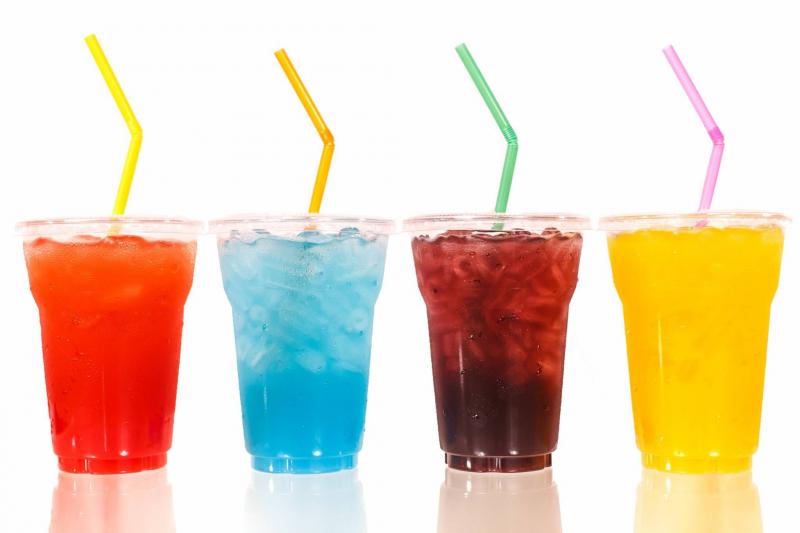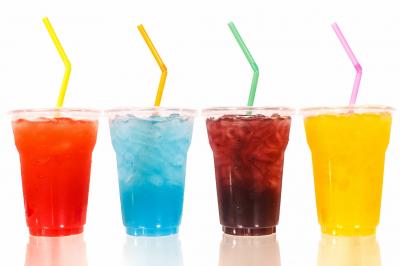Diabetes is referred to as the "silent disease" because it insidiously infiltrates our bodies, with high blood sugar levels serving as a precursor to prediabetes and type 2 diabetes. Some poor dietary habits can wreak havoc on blood sugar levels, such as consuming high-carbohydrate and sugary sweets, baked goods, white bread, rice, and other processed grain products. Healthcare specialist for diabetic patients, Molly Wagman, warns that sugary drinks are more dangerous than food, stating, "In just a few sips, you can consume the carbohydrates and sugar equivalent to a full meal." Understanding how certain drinking habits can elevate blood sugar to unhealthy levels and cause problems over time may help you replace those poor drinking habits with healthier ones.
Beverages that raise blood sugar and should be avoided include soda or sweet tea. A study conducted on over 300,000 people published in the Diabetes Care journal found that individuals who consume one to two servings of sugar-sweetened beverages daily have a 26% higher risk of developing type 2 diabetes compared to those who drink less than once a month. While it is evident that soda and sweet tea are packed with sugar, you may not realize the amount of added sugars present in commercial beverages. Kimberly Burpont, from the Wexner Medical Center at Ohio State University, emphasizes, "Read the nutrition facts label for carbohydrates and grams of added sugar; anything containing carbohydrates can raise blood sugar."
Burpont notes, "Pairing sugary drinks with a meal that contains protein and healthy fats can reduce blood sugar spikes." Sweetened coffee is another issue. While black coffee is a healthy drink full of beneficial polyphenols, adding sweeteners or high-calorie creamers can turn your cup of coffee into the equivalent of a soda can. Specialist Trista Best states, "Adding high-calorie, fatty sweeteners increases the likelihood of your usual coffee drink causing weight gain, making it one of the worst drinking habits for those wanting to control blood sugar."
Deceptive artificial beverages include labels like "100% all-natural energy drink," "real juice 100%," and "made from organic fruits," but as Wagman calls them, these "healthy masks" will not deceive your body. She says, "Popular energy drinks, sports drinks, and herbal teas are always made with plenty of added sugars to make them sweet." Wagman adds, "Even 100% pure orange juice is likely to cause blood sugar spikes."
Frozen drinks are also a concern. Some people believe that sweet iced coffee or a slushy drink on a hot day is acceptable even when worrying about blood sugar levels. Certified personal trainer and writer Steve Thonissen remarks, "A typical 20-ounce slushy contains about 83 grams of sugar; you would be hard-pressed to find a commercial slushy with less sugar, but you can make a healthy version at home using fruit; recipes are just a quick search away." Thonissen recommends avoiding iced coffee and sports drinks, which typically contain 74 and 34 grams of sugar, respectively, per 20 ounces.
Alcohol consumption is another factor. Experts note that some types of strong alcoholic beverages contain no sugar; however, many mixers found in cocktails include sugars, while wine contains sugars and carbohydrates, and beer contains carbohydrates. Thus, regular drinking "may lead to increased blood sugar levels along with the potential for weight gain," says David Brendan, a personal trainer. Brendan explains, "Alcohol alters the way the liver releases glucose, which can cause a sudden drop in blood sugar levels known as hypoglycemia." Insulin users should be aware of the effects of drinking on blood sugar levels. Wagman points out another fact related to beverage consumption for adults that can affect blood sugar levels: the food you consume while drinking and after.




